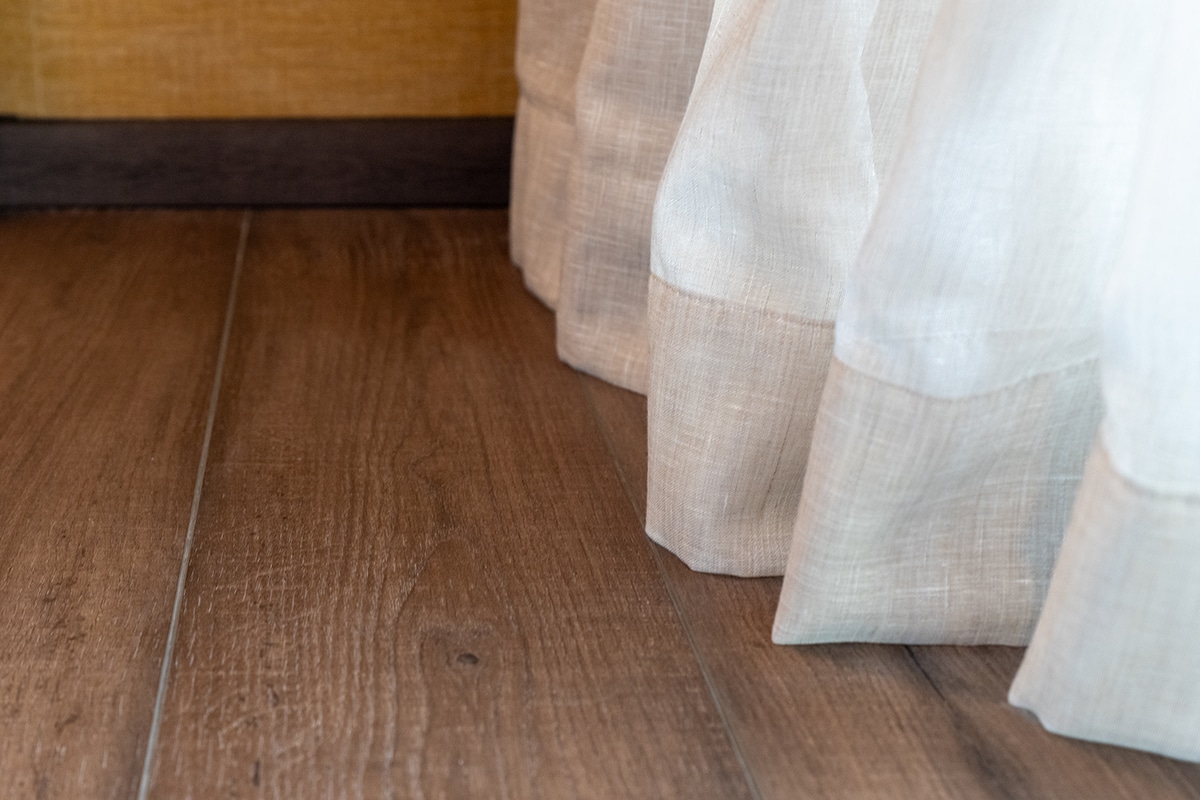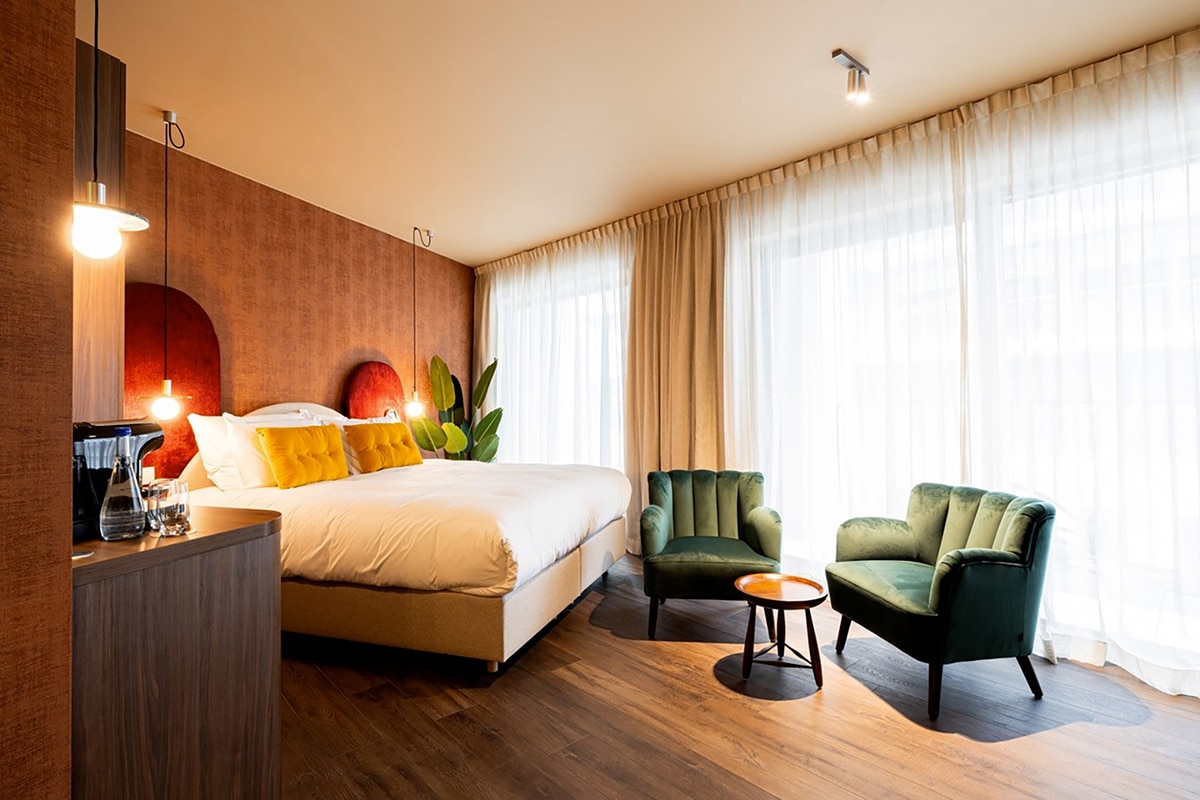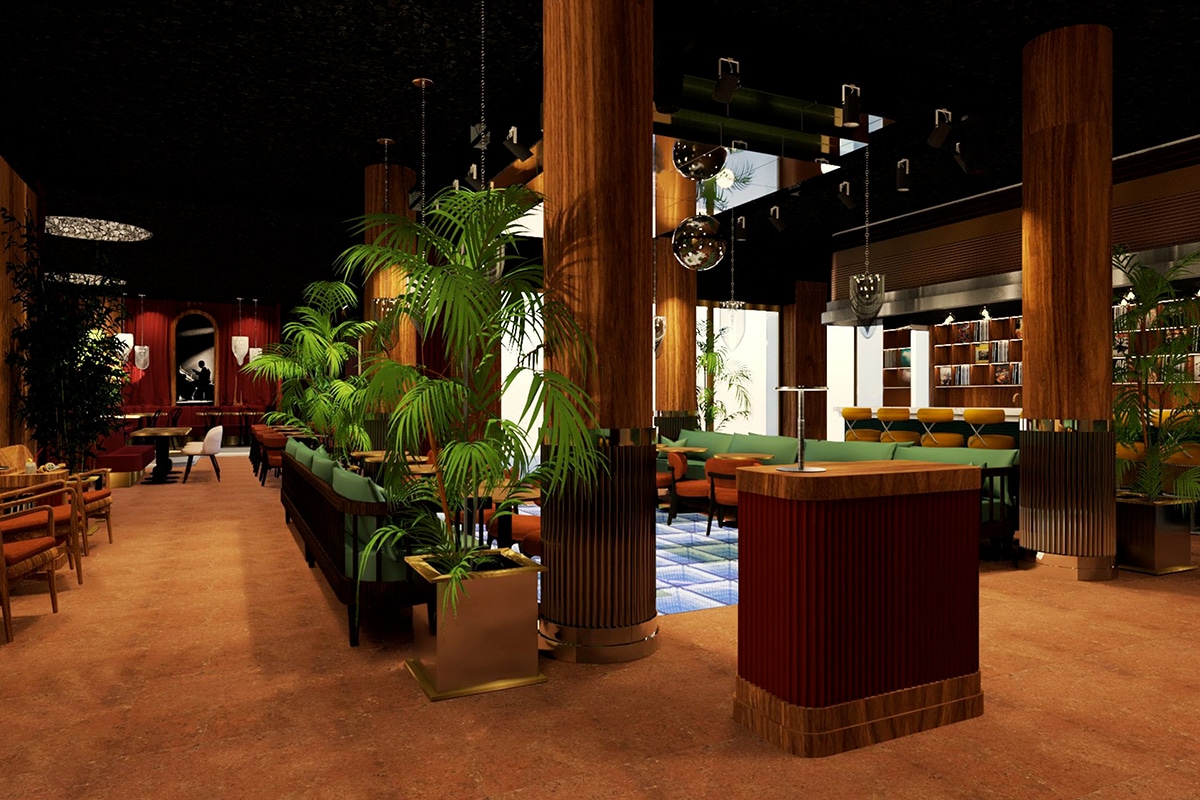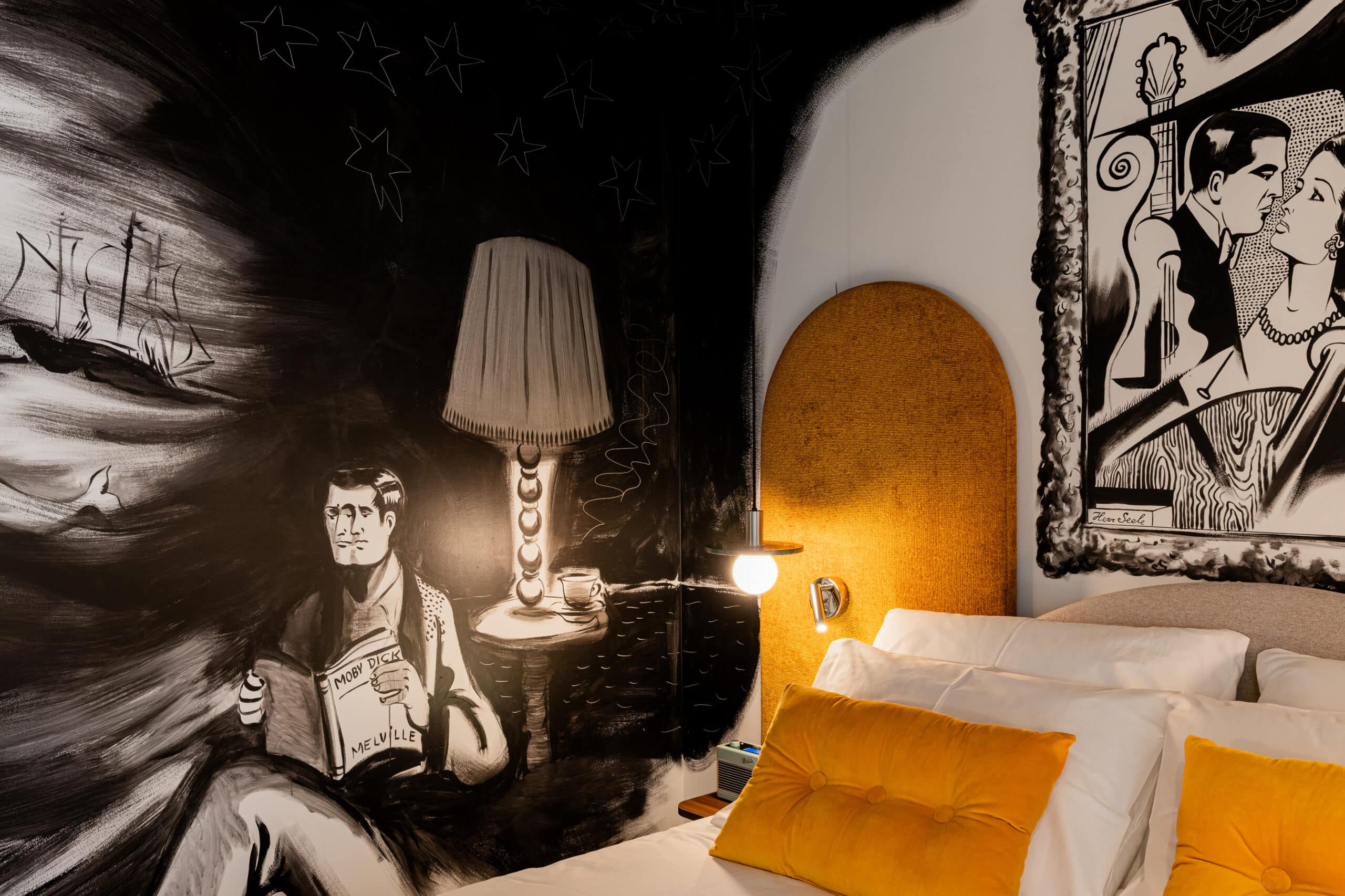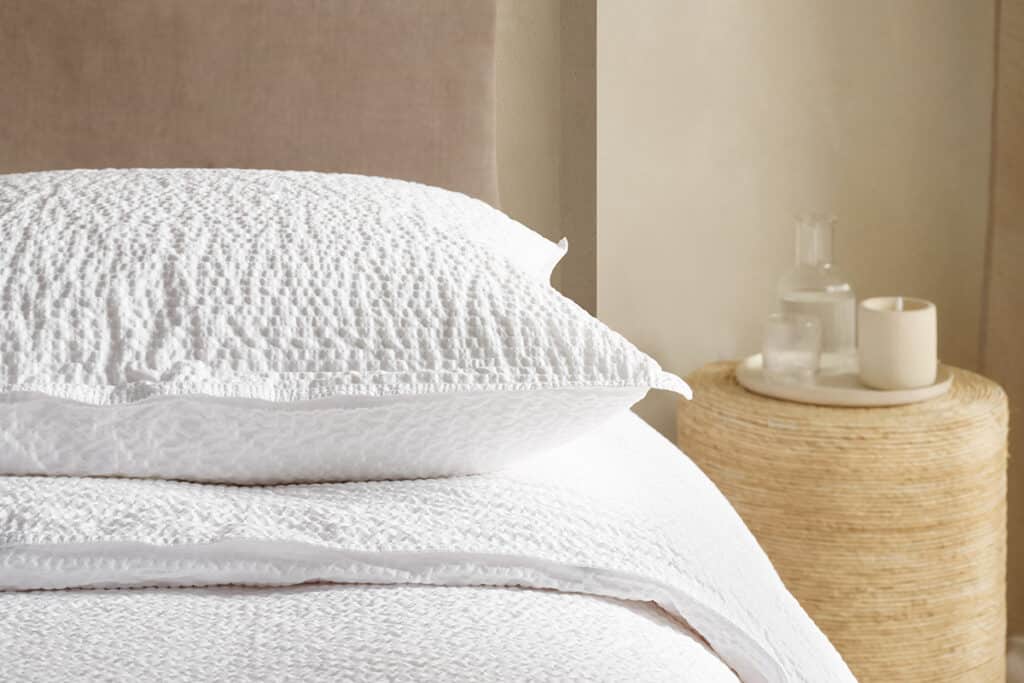
Textiles as silent hosts to suit any hotel
Hotel textiles play an indispensable role in guest experience
When guests enter a hotel, a stylish lobby, the warm welcome, a room with a spectacular view are often the elements that define the first impression. But once the first impression is processed, it is the invisible luxury that defines the real hotel experience. A soft sheet, a towel that feels just that little bit thicker, a bathrobe that acts like an embrace - hotel textiles play a much bigger role in the guest experience than we often realise.
"Hotel textiles are more than just a functional product," says Thomas Silversmet, Sales Director Conract Benelux at De Witte Lietaer. "It is a silent host that contributes to the comfort, hygiene and even branding of a hotel. A hotel room can look so luxurious, but if the sheets feel rough or the towels are worn, it subconsciously affects the guest's overall experience."
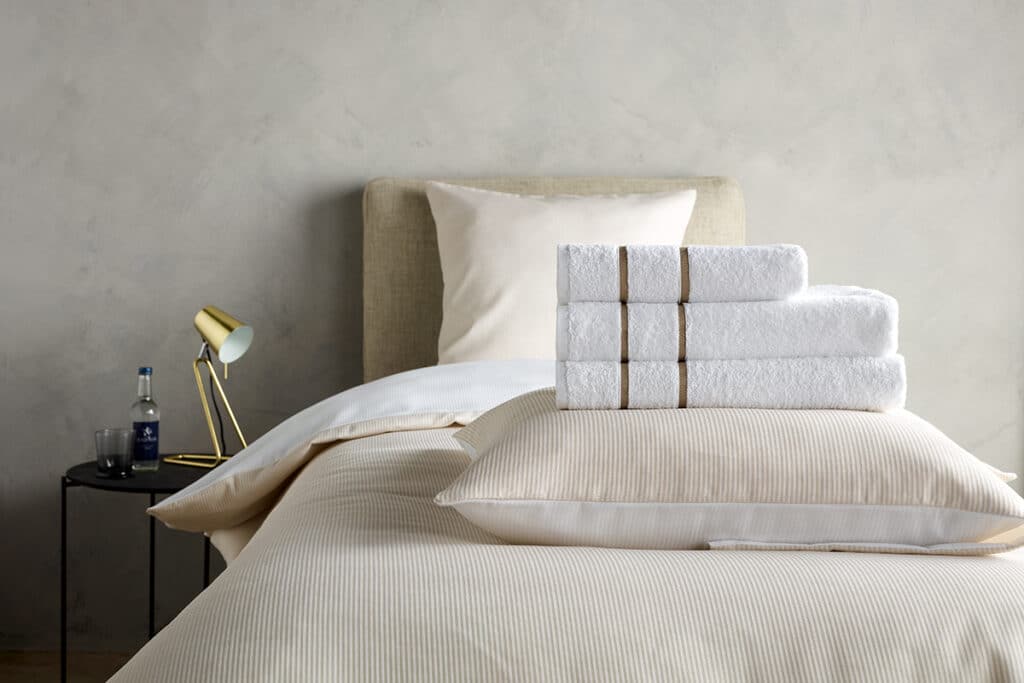
The psychology of comfort
Research from the Cornell University School of Hotel Administration shows that sensory experiences - such as the softness and smell of bedding - have a direct impact on the perception of quality in a hotel. Guests associate luxurious-feeling textiles with a high level of service and are more likely to return or leave a positive review.
Silversmet stresses that textile choice is crucial for hotels that want to stand out. "The smallest details make the difference. A freshly laundered, premium sheet can literally and figuratively take the hotel experience to the next level. This is not a luxury, but an investment in guest satisfaction and loyalty."
Sustainability: a must, not a trend
Where comfort and luxury come first, sustainability cannot be left behind. The hotel industry is becoming increasingly aware of the impact of textiles on the environment. Washing, replacing and throwing away is no longer sustainable - hotels are looking for ways to extend the life of linen without compromising on quality.
"The future of hotel textiles lies in sustainable innovations," says Silversmet. "We see a strong emergence of circular textile solutions: recycled materials, organic cotton and textile treatments that use less water and energy. Hotels that invest in these not only reduce their carbon footprint, but also their long-term operational costs."
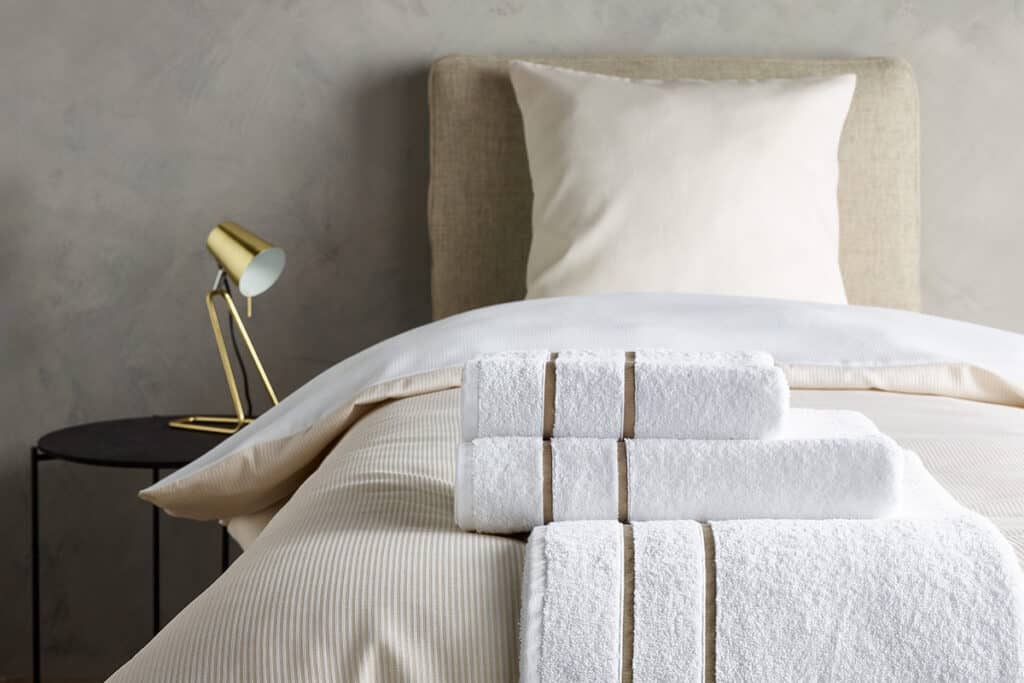
Hygiene and technology: a delicate balance
Another aspect that has gained importance in recent years is hygiene. Since the corona pandemic, hotels have paid extra attention to the cleanliness of their linen and washing procedures. But how do you combine strict hygiene standards with sustainable textile use?
According to Thomas Silversmet, the solution lies in technology. "Hotels can increasingly use smart laundry processes and antibacterial textiles. This ensures cleaner results with less impact on the fabric and the environment. Innovations such as self-cleaning sheets or textiles with silver ion technology are no longer a distant future, but realistic options that hotels can already deploy now."
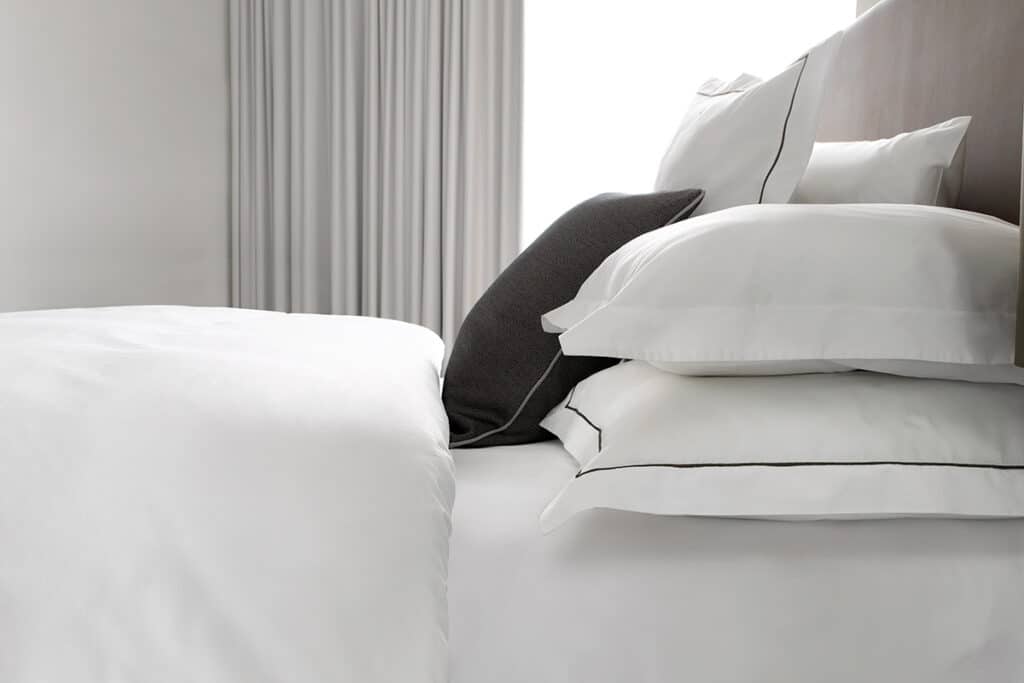
Textiles as a branding tool
Not only hygiene and sustainability play a role; textiles are also a powerful branding tool. Guests often recognise the luxury of a hotel by the little details - and linen is an essential part of that.
"More and more hotels are opting for personalised textiles: bedding with a subtly woven-in logo, towels in specific shades to match the branding, or high-quality bathrobes that contribute to a hotel room's 'feeling of home'," says Thomas Silversmet. "These seemingly small details reinforce a hotel's brand identity and contribute to a distinctive experience."
